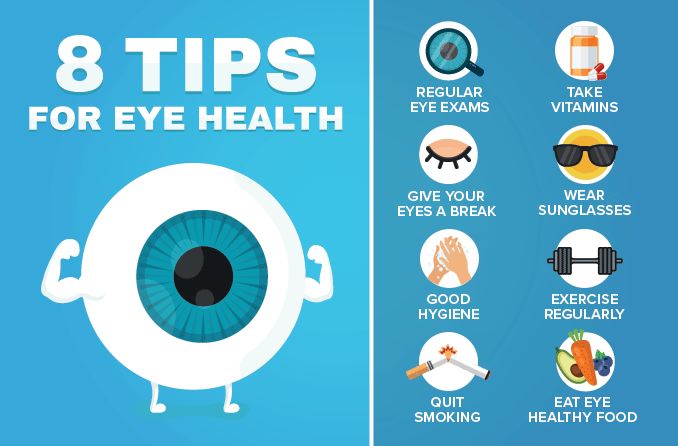Andalusia Pediatrics: Exceptional Care for Children's Health Needs
Andalusia Pediatrics: Exceptional Care for Children's Health Needs
Blog Article
Is Refractive Surgery Right for You? Aspects to Think About for Better Eyecare
In the world of eye care, the choice to go through refractive surgical procedure is a substantial one that requires thoughtful consideration. From the intricacies of one's ocular health and wellness to the ins and outs of day-to-day habits and individual expectations, each aspect holds value in the more comprehensive landscape of refractive surgical procedure candidacy.
Eye Health And Wellness Analysis
When considering refractive surgical procedure, a thorough eye wellness examination is important to analyze the viability of the procedure for each person. cardiologist andalusia. This assessment involves a collection of tests and examinations carried out by an eye care professional to determine the total wellness of the eyes, the existence of any underlying conditions, and the security of the refractive mistake
Throughout the examination, numerous factors are thought about, such as the patient's clinical background, current eye prescription, corneal thickness, student size, and tear movie quality. These analyses assist to recognize any kind of contraindications to refractive surgery, such as corneal problems, cataracts, or neglected eye infections. In addition, the examination aids to handle individual expectations regarding the possible outcomes of the surgical procedure based on their special eye attributes.
Inevitably, the eye health analysis is essential in making sure the safety and efficiency of refractive surgery, as it provides important insights right into the person's eye wellness standing and assists figure out one of the most ideal therapy options for accomplishing optimal visual outcomes. (cardiologist andalusia)
Way Of Living Analysis
A comprehensive lifestyle evaluation is essential in determining the suitability of refractive surgical treatment for a person's visual improvement requirements. Way of living elements such as occupation, leisure activities, and day-to-day activities play an essential duty in the decision-making process pertaining to refractive surgery.
Moreover, lifestyle routines such as sports participation, outdoor tasks, or even skincare regimens can affect the healing process and overall success of refractive surgery. By conducting an extensive lifestyle assessment, eye treatment specialists can customize their recommendations and treatment plans to meet the unique demands of each individual, eventually leading to improved aesthetic results and contentment.
Assumption Alignment

Establishing sensible expectations involves comprehensive pre-operative discussions between the patient and the eye doctor. The cosmetic surgeon should transparently connect the potential dangers, benefits, and limitations of the treatment (andalusia pediatrics). Patients require to comprehend that while several individuals attain 20/20 vision or much better adhering to refractive surgical treatment, some may still require glasses for particular activities like reading or driving at evening. Handling these expectations assists prevent dissatisfaction and discontentment click site post-surgery, leading to a much more positive total experience for the client.
Danger Evaluation

Variables that may enhance the threat of complications include age, particular clinical conditions like autoimmune diseases, unpredictable vision prescription, slim corneas, and impractical individual assumptions. In addition, choosing a competent and experienced cosmetic surgeon, adhering to pre and post-operative care instructions diligently, and disclosing any kind of pertinent medical background can help mitigate risks.
To decrease the probability of difficulties, ophthalmologists perform detailed pre-operative examinations to determine any kind of contraindications to surgical treatment. They additionally talk about the prospective threats and benefits with patients during the appointment process. By taking part in open communication and shared decision-making, both the client and the ophthalmologist can interact to establish if refractive surgical procedure is the right choice based on private danger profiles and preferred results.
Appointment Significance
Taking into consideration the essential function of notified decision-making in assessing risks and possible difficulties in refractive surgery, the appointment procedure holds considerable value in directing clients towards ideal end results. Throughout the assessment, the ophthalmologist reviews the client's eye health and wellness, refractive errors, and total viability for surgery. This first evaluation is vital in figuring out one of the most ideal procedure for every person, taking into account factors such as corneal density, pupil size, and existing eye conditions.
Moreover, the examination acts as a possibility for people to discuss their expectations, worries, and any type of inquiries they may have concerning the surgical treatment. Clear communication between the doctor and the patient is important to make certain reasonable expectations and a comprehensive understanding of the prospective threats and advantages involved.
In addition, the appointment permits the doctor to explain the various medical options readily available, their respective results, and the post-operative care called for. This comprehensive discussion encourages patients to make well-informed decisions regarding their eye treatment, causing much better fulfillment and results post-surgery.
Verdict
To conclude, individuals taking into consideration refractive surgery must undergo a detailed eye wellness assessment, examine their way of visite site life routines, align their expectations with potential end results, analyze the affiliated threats, and focus on examinations with eye care specialists. These aspects play a crucial function in figuring out the viability of refractive surgical procedure for each person, guaranteeing optimum end results and satisfaction with the procedure.
Clients considering refractive surgery commonly have high assumptions regarding the results, expecting perfect vision without the requirement for glasses or call lenses. While refractive surgical procedure can substantially enhance vision and minimize reliance on aesthetic help, it is critical for clients to understand that results may vary based on individual elements such as the level of refractive error, corneal density, and total eye health and wellness.
By involving in open communication and shared decision-making, both the eye doctor and the individual can work with each other to establish if refractive surgery is the best option based on specific threat accounts and wanted results.
Thinking about the crucial duty of informed decision-making in analyzing risks and see this prospective difficulties in refractive surgical treatment, the assessment procedure holds substantial importance in directing people in the direction of optimum outcomes. During the assessment, the ophthalmologist examines the client's eye health and wellness, refractive errors, and overall viability for surgical treatment.
Report this page